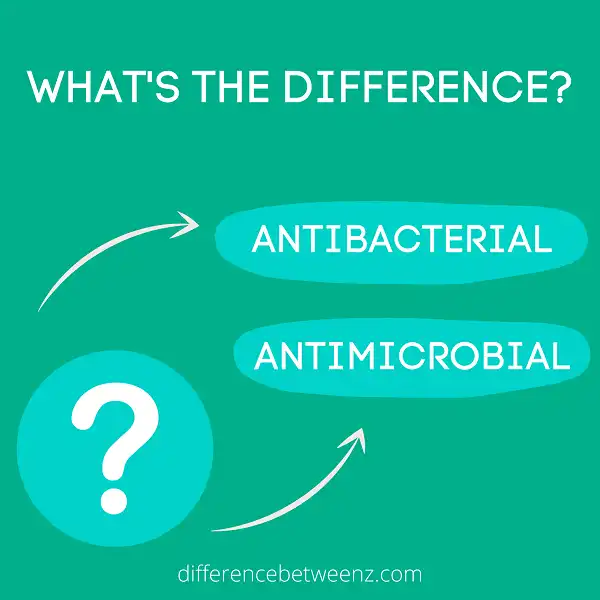Antibacterial and antimicrobial are two words that are often confused. Many people believe they mean the same thing, but this is not the case. Antibacterial agents are chemicals that destroy or inhibit the growth of bacteria. Antimicrobial agents are substances that either kill microorganisms or inhibit their growth. In this blog post, we will explore the difference between antibacterial and antimicrobial agents.
What is Antibacterial?
Antibacteria are substances that destroy or inhibit the growth of bacteria. Antibacterial agents can be found in a number of different forms, including soaps, detergents, and disinfectants. While antibacterial agents are effective at killing bacteria, they are not necessarily effective against all types of microorganisms. For example, antibacterial agents are typically ineffective against viruses. As a result, it is important to select an antibacterial agent that is appropriate for the task at hand. Antibacterial agents are typically safe for use in household settings, but they should be used with caution in healthcare settings due to the potential for promoting the development of antibiotic-resistant strains of bacteria.
What is Antimicrobial?
- Antimicrobial agents are substances that kill or inhibit the growth of microorganisms. Antimicrobials are used in a variety of settings, including healthcare, food production, and water treatment. In healthcare, antimicrobials are used to treat infections caused by bacteria, viruses, fungi, and parasites. In food production, they are used to prevent the growth of foodborne pathogens.
- In water treatment, they are used to disinfect water supplies. Antimicrobial agents can be divided into two broad categories: natural and synthetic. Natural antimicrobials are derived from plant extracts or other natural sources. Synthetic antimicrobials are man-made chemicals. Antimicrobial agents are effective against a wide range of microorganisms, including bacteria, viruses, fungi, and parasites.
- However, they are not effective against all microorganisms. Antimicrobial resistance is a major problem in healthcare and food production. Antimicrobial resistance occurs when microorganisms evolve to become resistant to the effects of antimicrobial agents. When this happens, the antimicrobial agents become ineffective against the resistant microorganisms.
Difference between Antibacterial and Antimicrobial
Antibacterial and antimicrobial are two terms that are often used interchangeably, but they actually have different meanings. Antibacterial refers to a substance that kills or inhibits the growth of bacteria. In contrast, antimicrobial refers to a substance that kills or inhibits the growth of all microorganisms, including bacteria, viruses, fungi, and protozoa. Both antibacterial and antimicrobial agents can be used to treat infections. However, antimicrobial agents are typically more effective against a wider range of microorganisms.
Conclusion
Antibacterial and antimicrobial products are both designed to kill or inhibit the growth of bacteria, but there is a key difference between the two. Antimicrobial products also work against fungi, viruses and other microorganisms, while antibacterial products only target bacteria. Both types of product can be found in a variety of forms, including soaps, hand sanitizers and wipes.


